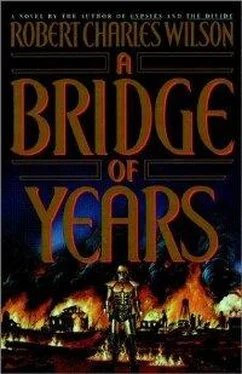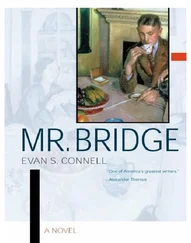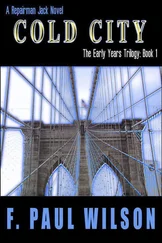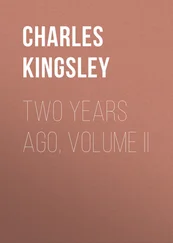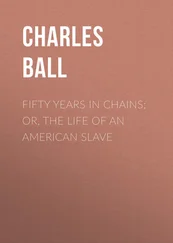Now Catherine drifted to sleep beside him while Archer lay awake listening to the silence. It was quiet up here along the Post Road. Twice, he heard a car pass by outside—one of the locals, home late; or a tourist looking for the highway.
There were big questions that still needed answering, he thought. Archer thought about the word “time” and how strange and lonely it made him feel. When he was little his family used to drive down to his uncle’s ranch outside Santa Fe in New Mexico, dirt roads and the Sangre de Cristo Mountains in the distance, scrub pines and sage brush and ancient pueblos. The word “time” made him feel the way those desert roads used to make him feel: lost in something too big to comprehend. Time travel, Archer thought, must be like driving those roads. Strange rock formations and dust devils, and an empty blank horizon everywhere you look.
When he woke, Catherine was dressing herself self-consciously by the bed. He turned away politely while she pulled on her panties. Archer sometimes wondered whether there was something wrong with him, the doubtful way women always looked at him in the morning. But then he stood up and hugged her and he felt her relax in his arms. They were still friends after all.
But something was different today and it was not just that they had gone to bed last night. Something in this project was less miraculous now, more serious. They knew it without talking about it.
After breakfast they hiked down to the Winter house to visit Ben Collier.
The steaks from the Safeway had been doing him good. Ben was sitting up in bed this morning, the blankets pooled around his waist. He looked as cheerful as a Buddha, Archer thought. But it was obvious from the he of the bedclothes that his leg was still missing.
Archer believed the stump was a little longer, though. It occurred to him that he expected the time traveler to grow a new leg—which apparently he was doing.
“Morning,” Archer said. Catherine stood beside him, nodding, still a little frightened.
Ben turned his head. “Good morning. Thank you for coming by.”
Archer began to deliver the speech he’d been rehearsing: “We really have to talk. Neither of us minds coming down here. But, Ben, it’s confusing. Until we know what’s really going on—”
Ben accepted this immediately and waved his hand: no need to continue. “I understand,” he said. “I’ll answer all your questions. And then—if you don’t mind—I’ll ask you one.”
Archer said that sounded fair. Catherine brought in two chairs from the kitchen, on the assumption this might take a while.
* * *
“Who are you really,” Archer asked, “and what are you doing here?”
Ben Collier wondered how to|respond to this.
Confiding in these people was a radical step … but not entirely unprecedented, and unavoidable under the circumstances. He was prepared to trust them. The judgment was only partially intuitive; he had watched them through his own eyes and through the more discerning eyes of his cybernetics. They showed no sign of lying or attempting to manipulate him. Archer, in particular, seemed eager to help. They had weathered what must have been a frightening experience, and Ben credited that to their favor.
But they would need courage, too. And that quality was harder to judge.
He meant to answer their questions as honestly and thoroughly as he could. He owed them this, no matter what happened next. Catherine could have made things infinitely more difficult when she discovered him in the shed—if she had called the police, for instance. Instead, his recovery had been hastened by a significant margin. It would have been pointless and unkind to lie about himself.
He was born (he explained) in the year 2157, in a small town not far from the present-day site of Boulder, Colorado. He had lived there most of his professional life, doing research for a historical foundation.
All this begged the definition of “small town,” of “professional life,” and of “historical foundation” as these things would be understood by Archer and Catherine—but they were close enough to the truth.
Catherine said, “That’s how you became a time traveler?”
He shook his head. “I was recruited. Catherine, if you visited the twenty-second century you would find a lot of marvelous things—but time travel is not among them. Any reputable physicist of my own era would have rejected the idea out of hand. Not the idea that time is essentially mutable and perhaps nonlinear, but the idea that it could be traversed by human beings. The water in the ocean is like the water in a swimming pool, but you can’t swim across it. I was recruited by individuals from my own future, who were recruited by others from their future—and so on.”
“Like stepping stones,” Archer supplied.
“Essentially.”
“But recruited for what?”
“Primarily, as a caretaker. To live in this house. To maintain it and protect it.”
“Why?” Catherine asked, but he imagined she had already surmised the answer.
“Because this house is a sort of time machine.”
“So you’re not a real time traveler,” Archer said. “I mean, you come from the future … but you’re only a kind of employee.”
“I suppose that’s a good enough description.”
“The machine in this building isn’t working the way it’s supposed to—am I right?” He nodded.
“But if it was, and you were the custodian, who would come through here? Who are the real time travelers?”
This was a more serious question, more difficult to answer. “Most of the time, Doug, no one would come through. It’s not a busy place. Mainly, I collect contemporary documents —books, newspapers, magazines—and pass them on.”
“To whom?” Catherine asked.
“People from a time very distant from my own. They look human, but they aren’t entirely. They created the tunnels— the time machines.”
He wondered how much sense they would make of this. The real time travelers,’ Archer had said: as good a description as any. Ben always trembled a little on the occasions when he was required to interact with these beings. They were kindly and only somewhat aloof; but one remained conscious of the evolutionary gulf. “Please understand, much of this is as far beyond my comprehension as it may be beyond yours. All I really know are legends, passed down by people like myself—other custodians, other caretakers. Legends of the future, you might say.”
“Tell us some,” Archer said.
What this concerns (Ben explained) is life on earth.
Look at it in the context of geologic time.
In the primeval solar system the earth is fused into coherent shape by the collisions of orbiting planetesimals. It has a molten core, a skin of cooler rock. It exudes gases and liquids —carbon dioxide, water. In time, it develops an atmosphere and oceans.
Over the course of millions of years, life of a sort arises as vermiform crystalline structures in the porous rock of hot mineral-dense undersea vents. In time, these crystalline structures adapt to a cooler environment by incorporating proteins into themselves—so successfully that the crystalline skeleton is discarded and purely proteinoid life comes to dominate the primitive biosphere. RNA and DNA are adopted as a genetic memory and evolution begins in earnest.
An almost infinite diversity of structures compete against the environment. There will never again be such complexity of life on earth—the rest of evolution is a narrowing, a winnowing out.
The climate changes. Prokaryotic cells poison the atmosphere with oxygen. Continents ride tectonic plates across the magma. Life flows and ebbs in the long intervals between cometary impacts.
Читать дальше
